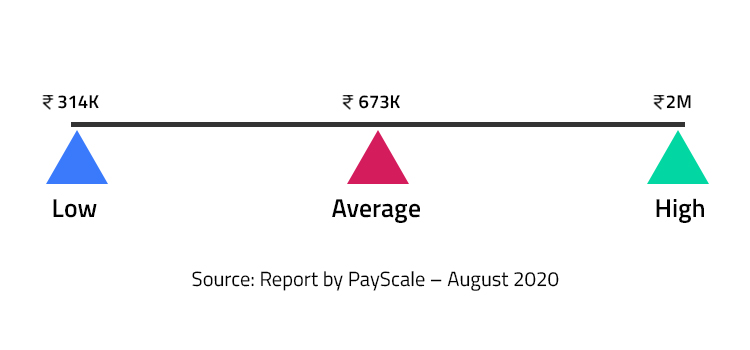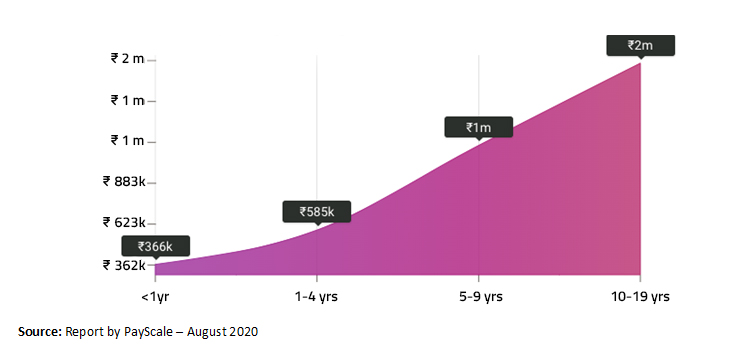DevOps is becoming increasingly synonymous with the future of business functionality, and famously being referred to as the next generation of Agile. It has fostered a successful approach of breaking silos and therefore cutting through the traditional landscape barrier. Businesses adopting DevOps, witness a cultural shift within their organization, which is fuelled by the idea of “systems thinking”. This cultural shift revolves around team-based and cross-departmental collaboration with the end goal of offering higher client satisfaction with a great significance given to communication.
In this era of ever-evolving technology, the only thing we can rely on and embrace is change. This change in culture brings agility to the core functionality of an organization and brings the operations and development teams closer. DevOps represents this collaboration and so much more. In this blog, we focus on how DevOps trends affect the market going forward and what the future holds for DevOps.
What is DevOps?
Today, DevOps is at its peak of popularity and as per the prediction by IDC, the worldwide DevOps software market will reach $8 billion by 2022, up from $3.9 billion in 2017.
DevOps can be defined as a set of practices which combines development and operations along with the principles associated with agile methodology. DevOps is an ethos which focusses on increased collaboration whilst automating the deployment of software and infrastructure changes. These practices are focused on improving overall efficiency and removing unnecessary bottlenecks along the way. There has never been a better time than right now to focus on the adoption of DevOps practices. Developers are looking for major flexibility with increased work from home opportunities and a wave of modern apps are bombarding the industry. The adoption rate of innovation across industries and markets has dramatically increased bringing all the focus on what lies ahead in a field as advanced and as fast-moving as DevOps.
Trends in DevOps
- Cloud-native is the new normal: One of the major trends we have noticed surrounding DevOps is the increase in the diversity of cloud services. Cloud adoption is surging ahead with an increasing number of enterprise leaders focusing on having hybrid cloud infrastructure in place. Cloud-native refers to the automation of installation, configuration and supervision of cloud computing services. A DevOps approach helps with the deployment of cloud-native technologies, such as, containerization and microservice architectures.
- The shift of focus on automation: Automation is one of the key principles of DevOps. Developers have to spend hours over manual tasks, such as, filling out forms, creating incident requests and change requests, etc. Organizations are increasingly adopting automation to remove unnecessary friction in daily tasks for developers. As automation is becoming increasingly common in the workplace, developers are spending more and more time deploying apps with greater efficiency.
- Security – DevSecOps is the real deal: DevSecOps started as another buzzword and tech lingo, however, it has increasingly become the need of the hour. It creates knowledge and awareness amongst employees that security is not only the responsibility of security experts, but for everyone and at every stage of the development lifecycle. DevOps principles work towards uniting DevOps and security, while working incessantly towards fixing the exponential growth of security breaches.
- Serverless Architecture Migration: Serverless architecture uses a cloud provider to manage the allocation of servers. This saves cost, time, and a significant amount of tedious work. One of the major shifts in trends with DevOps which is foreseen in the future, is employing serverless architecture with organizations increasingly walking away from on-premise servers. Going serverless have some really outstanding benefits, such as, enhanced scalability, better user experience, fast deployment, and lower cost.
- Rise of Artificial Intelligence (AI) and Machine Learning: In this era of fast-changing and ever-evolving technology, the consumer is focused on experience and convenience above everything else. Technological innovation has become the need of the hour for organizations and there is a huge increase in data-driven applications that use artificial intelligence and machine learning. Artificial intelligence can successfully and efficiently handle large sets of data which are far too complex for humans to work with. Now talking about DevOps, it generates a huge amount of datasets to work with, especially for large organizations. Companies such as Facebook, Netflix, Apple, Spotify, etc. rely heavily on AI to analyze these datasets for television and music recommendations tailored for specific interests and needs of customers. These reasons have increased the popularity of AI leaving little to no scope for human error.
These DevOps trends reflect how the market is moving forward and how we can become more agile while preparing ourselves for what’s to come. DevOps is focused on eliminating the engineering barriers and cultural conflicts existing in an organization, for better and secure execution of innovations.
For jobseekers and potential aspirants in the field of DevOps – Tech giants like Accenture, Oracle IBM, Wipro, TCS, Amazon, etc., have rapidly adopted DevOps practices. This, in turn, has created a huge demand for DevOps professionals. It’s a highly lucrative field providing a competitive edge to professionals. The top roles in DevOps include:
- DevOps architect
- DevOps engineer
- DevOps manager
- Security engineer
- Release manager
There is an endless demand for DevOps professionals in India, which in turn, is the primary reason for a higher DevOps salary. The average salary for a DevOps engineer in India is Rs. 673, 346.

Below are the salary variations for DevOps engineers based on their experience.

The Future of DevOps – Conclusion
Organizations moving towards a more digital future and looking to disconnect from a conventional functionality are adopting DevOps and replacing their traditional IT practices. Successful execution of DevOps is reflected by better communication amongst teams and an efficient cultural shift in an organization. All these benefits have increasingly encouraged organizations to adopt DevOps practices and one can safely say that the future of DevOps says that it’s here to stay.
Adopting DevOps is increasingly becoming the de facto standard for software development. Keep up with this trend and become “DevOps successful” by enrolling to our DevOps training. Cognixia – world’s leading digital talent transformation company is offering DevOps Plus training to understand the significance of DevOps. Our DevOps plus training is delivered fully online and instructor-led in public schedules. All participants of the DevOps course get lifetime access to all the learning material via our LMS. On successful completion of the DevOps course, participants also get a globally recognized DevOps Plus certification, which they can add as a credential to their resume, share on LinkedIn and other social media, as well as use as a validation for their skills and knowledge in the field of DevOps. Visit our website here to know more details.

